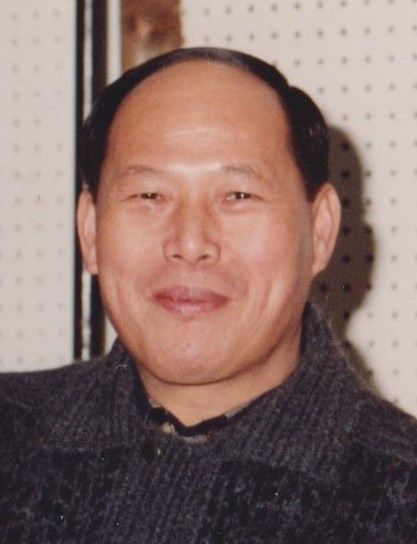
OBITUARY
Kai Chi Leung
September 3, 1938 – July 10, 2022

Kai Chi is survived by his beloved wife, Lin Lin, and loving children, Josephine and Amy, as well as a host of siblings, nieces, nephews, friends and students. Kai Chi was an accomplished Kung Fu Grandmaster who encouraged his students to experience the boundless energy and health that martial arts would bring. He often enjoyed the ritual art of tea preparation for that perfect brew of tea.
A funeral service will occur Thursday, July 28, 2022 from 9:00 AM to 11:00 AM at J.S. Waterman Langone Chapel, followed by burial at Forest Hills Cemetery.
A Kung Fu Grandmaster's Story:
Kai Chi Leung, recognized Grand Master of the Wutang martial arts system, passed away on July 10, 2022. Cambridge, the greater Boston metropolitan area, and the world have lost a legendary grandmaster. With him is lost the knowledge of ancient martial arts systems that few have taken the time to cultivate.
Master Leung’s journey began in pre-revolutionary China during a simpler time, when tigers still roamed the hills at night near his family farm in the Guangdong Province of China. With the political and social turmoil of the communist revolution, much of the martial arts community as well as Kai Chi Leung’s family moved first to Hong Kong and then to Taiwan.
His first teacher in the Northern Shaolin system was Master Harn Ch’ing T’ang. Master Leung established himself as Harn’s top student and eventually married Harn’s daughter, a grandmaster in her own right, Lin Lin Harn. Master Harn Ch’ing T’ang was also the student of the T’ai Chi Master Chengfu Yang; Kai Chi Leung went on to attain the highest levels of achievement in both Chen Style and Yang Style T’ai Chi Ch’uan, including his extraordinary mastery of the Cannon Fist style. He also learned Ch’in Na and many weapons from his father-in-law.
In Taiwan, Master Leung was introduced to Liu Yun Ch’iao, Grandmaster of the Wutang system which includes Pa Chi Ch’uan, Pi Kua Chang, Mi Zong Ch’uan, and Pa Kua Chang. Master Leung quickly emerged as Master Liu’s top student and eventually became the inheritor of the Wutang system.
Master Leung’s exercise regimen was indeed legendary: he would rise at 4:00 each morning to practice his art for 4 hours before going to school where he studied Chinese medicine and later dentistry. His training in Chinese medicine was traditional, and he would often cite the poetry that students would use to memorize the Chinese names of the acupuncture points and meridian pathways as an aid to teaching and learning this deep art of healing.
Master Leung’s discipline and dedication to the martial arts brought him into contact with many renowned masters and earned him the opportunity to do advanced training in Hsing I Ch’uan with Chao Lian Fang, Shuai Jiao (grappling and throwing techniques) with Chang Hsiang San, and T’ang Lang Ch’uan (Praying Mantis) with Chang Hsiang San and Li Kun Shan. He told the story that it took a full year of dedicated practice to fully learn each of the five foundational elements of the Hsing I Ch’uan system (metal, water, wood, fire, and earth). His teachers also included: Wei Hsiao T’ang (Eight-Step Mantis), and Tu Yu Tze (Chen T’ai Chi). He may be the most versatile practitioner and teacher of his generation, considering the breadth and depth of his training and the high level of achievement he attained across many systems.
His prowess became well known and he eventually moved to the Philippines with Master Lin Lin Harn. He later traveled to New York in the 1970s to visit family and came to know some of the most famous martial artists living in the U.S at that time, including T.T. Liang and Cheng Man-Ch’ing. T.T. Liang eventually brought Master Leung to Cambridge, Massachusetts; there he started the American Jiann Shyong Kung Fu Center where, over the last forty years, countless students have benefited from his wisdom and expertise in self-defense and healing arts.
While in the U.S., Master Leung adapted the training and style of his martial systems to focus more on health promotion and peace of mind. Combined with his skills as a high-level practitioner of traditional Chinese medicine, he brought many of his students back to good health with the combination of regular martial arts exercise and healing herbs. His students were like family, and he would often place calls to remind them to come to class and to practice daily; he would offer gentle admonishments not to “be lazy,” encouraging them to experience the boundless energy and health that his style of martial arts would bring. It would also give him great pleasure to gather large tables of students for meals in Boston’s Chinatown, encouraging everyone to eat as much as they can – to prepare for the next workout. He offered students many other lessons as well: the importance of drinking tea and relaxing between sets, how to choose the best weapons and sneakers (to have the best tools for your art), the importance of honoring your teachers, working hard, and striving toward perfection.
Always extremely humble, Master Leung followed the Daoist middle way, focusing his energy on cultivating his garden locally rather than seeking out international fame. On a personal level, he always believed that the most important focus in martial arts is not theory but practice, and he lived this life, practicing his art each day, modeling the life that he promoted among his students and followers.
He will be best remembered by all who knew him as a humble man who had nonetheless achieved greatness, without sacrificing an endearing and enduring humanity. The Cambridge/Boston community has been fortunate to have had such a treasure among us.
Show your support
Add a Memory
Share Obituary
Get Reminders
Past Services
Funeral Service
Burial
SHARE OBITUARYSHARE
- GET REMINDERS
v.1.16.3